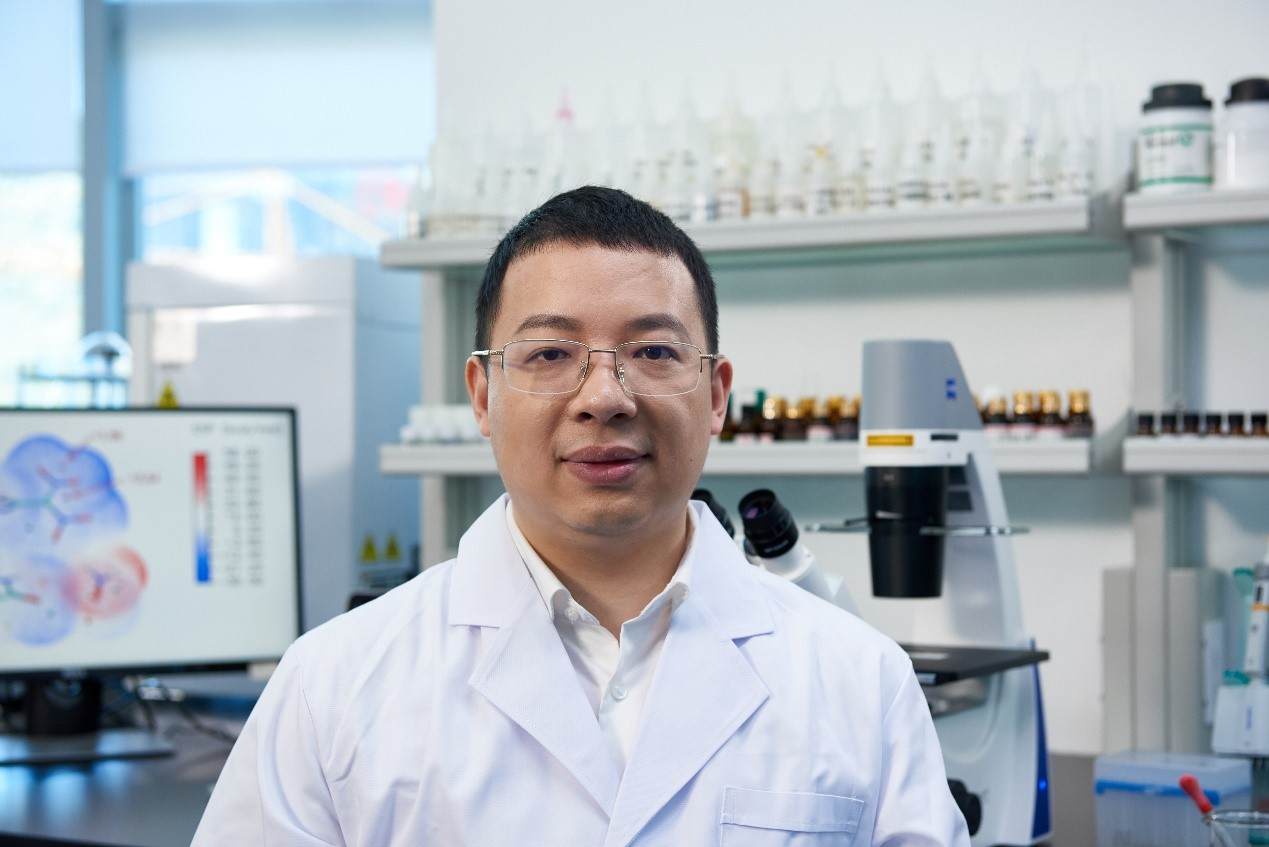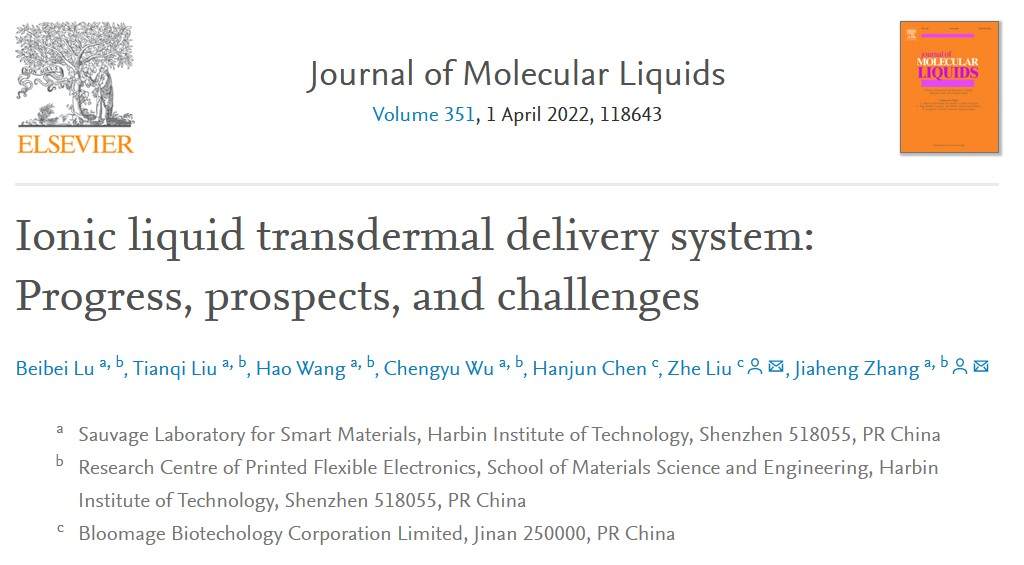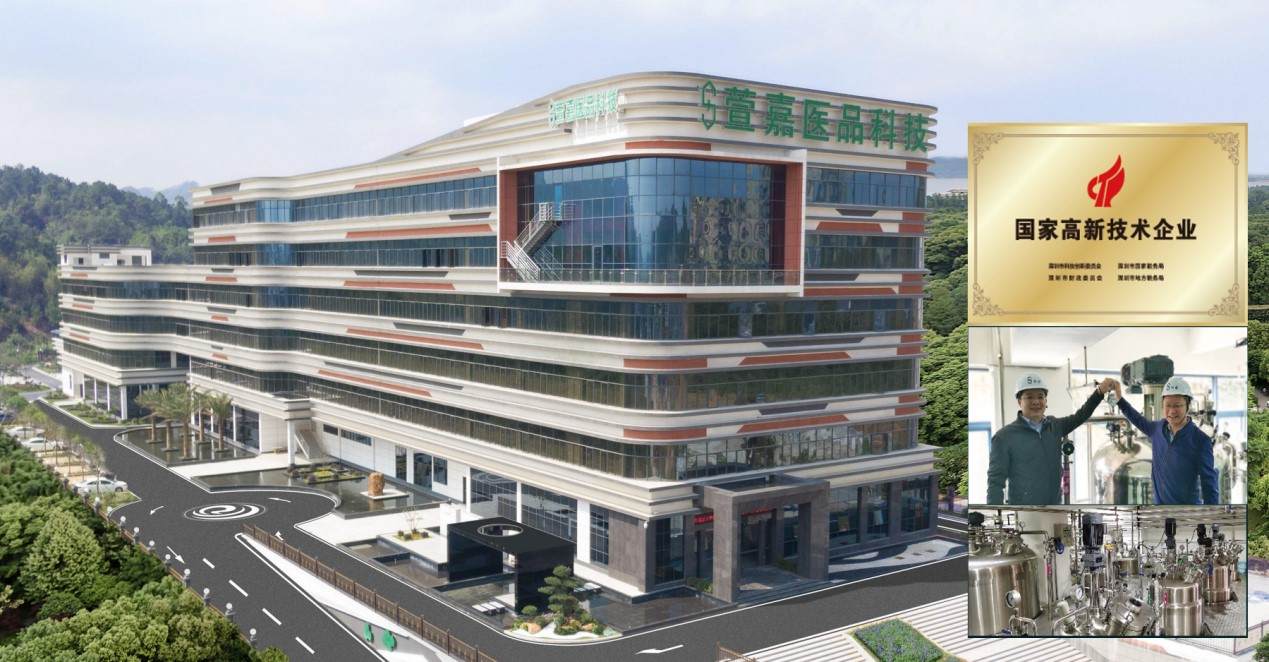36氪 was informed that Shenzhen Xuanjia Bio has recently completed nearly 200 million yuan in Series A financing. This round of investment was jointly led by Dongfang Fuhai and Bloomage Langya, followed by Tongchuangweiye, Hongtai Fund, Lihe Hongxin, and Sihai New Materials. Public information shows that Bloomage Langya is an industrial investment fund jointly established by the medical beauty giant Bloomage Bio and the fashion group Langzi, focusing on investment in the field of big health.
Xuanjia Bio is the world’s first technology industrialization platform company that applies supramolecular chemistry technology to the field of pan-health. Relying on the core platform-type technology of supramolecular modification, it provides customers in the pan-health field with one-stop CDMO services such as customized raw materials, R&D, production, patent drafting, and efficacy testing. The products of Xuanz Bio have been verified and recognized by leading companies in the industry, and have established in-depth cooperation with a number of leading companies including Bloomage Bio.
Professor Zhang Jiaheng from the School of Materials Science and Engineering, Harbin Institute of Technology (Shenzhen) returned to China in 2017 to found Xuanjia Bio. Before returning to China, Professor Zhang Jiaheng worked in the United States for 4 years, his main research direction is supramolecular chemistry in rocket propulsion fuel and other energy-containing Technical applications in the field of materials, with more than 60 papers published in this research area. According to the published papers in the SciFinder database, Professor Zhang Jiaheng’s papers in this field are among the top ten in the world.
Professor Zhang Jiaheng, founder of Xuanjia
With a pure heart to transform the industry with technology, Zhang Jiaheng returned to China with the technology of “supramolecular chemistry”, and he was awarded the position of full professor of Harbin Institute of Technology (Shenzhen) in his 30th year. He has published more than 170 SCI papers, cited more than 5000 times, h The index is 45 (there are 45 articles with more than 45 citations), the number of citations is high in the field of chemistry, and the academic influence is extensive.
Supramolecular chemistry is the science of studying molecular clusters with specific structures and functions formed by two or more chemical species associated with each other through intermolecular forces. Intermolecular forces are based on non-covalent bonds, including hydrogen bonds. , ionic bonds, π-π interactions, van der Waals forces, hydrophobic interactions, and metal coordination bonds.
Supramolecular chemistry was first proposed by JM Lehn, the Nobel Laureate in Chemistry in 1987. During the following three decades of development, supramolecular chemistry has penetrated into various industries, including but not limited to cosmetics, functional foods, medicine, aerospace, environmental protection and electrolytes.
Professor Zhang Jiaheng believes that supramolecular technology is an iterative upgrade of the old raw material proportioning method, and the role of supramolecular technology can be generally understood as the “matchmaker” between molecules. If the original raw material proportioning scheme is ” Trial and error method”, then supramolecular technology is equivalent to a “one-step matchmaker”.
In the process of raw material proportioning, due to the different structures between different molecules, continuous testing is required to achieve the structural adaptation between molecules. The proportioning process and results are unstable and the efficiency is relatively low. However, based on materials genomics and machine learning algorithms, supramolecular technology, the “matchmaker”, can quickly screen out several molecules with high structural fitness among thousands of molecules, enabling fast and efficient matching and self-assembly between molecules. achieve the desired effect.
When Professor Zhang Jiaheng returned to China, he wanted to industrialize the technology, instead of using it only for research and publication. In the early days of the business, Professor Zhang Jiaheng wanted to use the technology in the chemical catalysis industry and the aerospace industry, but after analysis, it would be more difficult for new technologies to be implemented in these two industries. First, the large-scale production technology of materials in these two industries The requirements are very high, and the second is that the verification cycle of these two industries is very long.
With a pragmatic attitude, Professor Zhang Jiaheng abandoned the idea of starting a business in the first two industries and chose to focus on starting a business in the cosmetic raw material industry first. With the rapid growth of per capita GDP and the release of dividends from e-commerce channels, national cosmetic brands have gradually risen. However, most domestic brands are still “porters” of international raw material giants, lacking core technologies, resulting in products lacking credible efficacy support. The market gap of active ingredients that support the efficacy of beauty products remains to be filled, and there are entrepreneurial opportunities among them.
During his postgraduate period, Professor Zhang Jiaheng conducted research on “ionic liquid” materials in the field of supramolecular technology and used them for plant extraction. During his work in the United States and Japan, he modified explosive molecules, rocket propellant fuel molecules and electrolyte molecules respectively to improve their thermal stability, specific impulse and energy density.
Applying the same modification method to match and self-assemble two cosmetic raw material molecules will also improve the performance of the raw material itself.
In the field of dermatology, scientists have fully studied the mechanisms of skin aging and melanin production, and then developed various active substances to inhibit skin aging and darkening. Many international brands have also developed a series of cosmetics through the research and development of new active substances. business results. Around 2015, major domestic brand bloggers began to grow grass on online platforms such as Xiaohongshu, so that consumers can gradually understand the efficacy of cosmetic active ingredients, and cultivated a group of “ingredient parties” and “efficiency parties”, which also created A batch of brands that label active ingredients, such as Bloomage Bio, which focuses on hyaluronic acid, Juzi Bio, which focuses on collagen, and HFP, which focuses on lactobionic acid.
Based on “supramolecular modification technology”, Xuanjia Bio has modified various cosmetic active raw materials to reduce the irritation of the raw materials, improve the transdermal absorption rate, and improve the stability. For example, supramolecular encapsulation of retinol improves its stability, and supramolecular encapsulation of blue copper peptide, snake-like peptide and cono peptide, etc., improves its transdermal absorption.
After four years of research from 2017 to 2020, Xuanjia Bio has prepared hundreds of cosmetic supramolecular raw materials, and conducted detailed efficacy tests on dozens of them. In April 2021, Xuanjia launched the cosmetic supramolecular raw materials to the market. After a year of promotion, Xuanjia Bio and Huaxi Bio, Marubi, Fan Wenhua, Han Hou, Xi Muyuan, Youshiyan, Lifetime Research, USMILE, Dozens of beauty and personal care companies such as Soochow and Beast Code have established in-depth R&D cooperation, custom-developed proprietary raw materials for them, and jointly build a technical moat.
Bloomage Bio has established research and development cooperation with Professor Zhang Jiaheng, the founder of Xuanjia Biotechnology since August 2021. After nearly a year of experimental verification, the two parties also jointly published in the JCQ1 journal “Journal of Molecular Liquids” in April this year. Research papers on transdermal drug delivery based on supramolecular ionic liquids.
A paper on drug transdermal delivery jointly published by Bloomage Biotechnology and Professor Zhang Jiaheng of Harbin Institute of Technology (Shenzhen)
As a newly introduced strategic investor in this round of Xuanjia, Bloomage Bio will also help Xuanjia Bio to further develop the international cosmetic raw material market and medical beauty market. At the same time, Xuanjia Bio will also combine its supramolecular catalytic technology with Bloomage Bio’s biosynthesis The combination of technologies will jointly establish a green chemistry and enzyme synergistic coupling catalytic system.
In the field of functional food raw materials, Xuanjia Bio has also developed a new microencapsulation solution based on supramolecular technology, which can produce colorless and odorless microcapsules, improve the water solubility of active food ingredients and enhance their core functions, which can be applied in functional and innovative foods. The main ingredients include a series of similar functional raw materials such as vitamins, vegetable oils, essential oils, probiotics, flavors, saturated and unsaturated fats. In addition, Xuanjia Bio has biosynthesized food-grade linear β-glucan and vitamin C glucoside with supramolecular chemistry and enzyme-coupled catalysis technology, which have the functions of improving immunity and adjusting intestinal flora. .
In the direction of environmental protection, Xuanjia Bio has also made a number of technical reserves. Including novel targeted adsorption materials based on supramolecular technology, which can selectively capture micro-pollutants from wastewater, including pesticides, pharmaceuticals and harmful chemicals and supramolecular solvent-modified carbon materials, which can perform water-oil separation from oily wastewater . At present, Xuanjia Bio has completed the construction of supramolecular material development platforms based on cyclodextrin, organometallic framework (MOF) and cucurbituril. Provide solutions in the application direction of living, allergen removal and so on.
Xuanjia Bio has built the world’s first bio-based supramolecular material production line
Owner’s point of view:
Dr. Liang Shuang, head of Bloomage Langya Investment, said that supramolecular technology, as an emerging technology applied in the field of cosmetics and medical beauty products, can be combined on the basis of existing raw materials to improve the catalytic efficiency of existing raw materials and the efficiency of products. In terms of efficacy and permeability, excellent process and product performance have been verified in glycoside raw materials, amino acid raw materials, polypeptide substances and collagen, etc., and the commercial prospects are broad and the space is huge.
Zhou Shaojun, a partner of Oriental Fortune, said that China’s cosmetics, food, health products and other pan-health industries have a large market space, all of which are hundreds of billions of market scale, and maintain an average annual growth rate of more than 10% for a long time. The R&D innovation, performance improvement and functional compounding of product raw materials will be the core of the growth-driven growth of China’s pan-health industry. It is believed that under the promotion of the high-level R&D team led by Professor Zhang Jiaheng, Xuanjia Biotechnology will enable the industrialization of supramolecular modification technology and increase efficiency, and China’s pan-health industry is also very likely to give birth to a golden age of raw material innovation.
media coverage
36Kr Investment World Sprout Investment China Network
This article is reproduced from: https://readhub.cn/topic/8h6zpbAK3Pk
This site is for inclusion only, and the copyright belongs to the original author.


